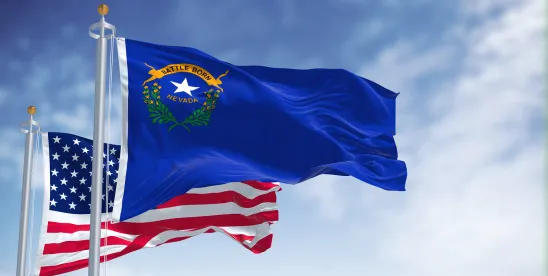Bright-eyed Athena, the goddess of wisdom, was not birthed of a woman. Rather, she sprang from the head of Zeus after he swallowed Metis, the pre-Olympian goddess of wisdom:
ἣ δ᾽ αὐτίκα Παλλάδ᾽ Ἀθήνην κύσατο: τὴν μὲν ἔτικτε πατὴρ ἀνδρῶν τε θεῶν τε πὰρ κορυφὴν Τρίτωνος (Then in a flash, she [Metis] conceived Pallas Athena: [Zeus] the father of men and gods gave birth from the top of his head by the shore of the river Trito.)
Hesiod, Theogony (my translation).
Delaware' jurisprudence of controller transactions is much like Athena, not being found in the Delaware General Corporate Law, but springing from the minds of judiciary. Rowe v. Doris, 2025 WL 963590 (S.D. Tex. Mar. 31, 2025) involved a challenge to a merger of two Nevada corporations - Viking Energy Group, Inc. and Camber Energy, Inc.. The complaint alleged that the merger was “conflicted” because Doris stood “on both sides” as “the CEO, President, and a director of both Viking and Camber” and could vote his majority Viking interest in favor of it.
U.S. District Court Judge Charles R. Eskridge, however, was not buying the plaintiff's claim. Citing and quoting NRS 78.138 and NRS 78.140, Judge Esckridge ruled:
Under these controlling provisions of statutory law, the Nevada Supreme Court has rejected the sort of conflicted-transaction theory alleged here by Plaintiff. In Guzman v Johnson, a former shareholder of an acquired company sued the company's directors (which included the allegedly conflicted directors) along with the non-director controlling shareholder, “alleging that they breached their fiduciary duties to her and the other minority stockholders in connection with the transaction.” 483 P3d 531, 535 (Nev 2021). As here, the Guzman shareholder-plaintiff “argue[d] that when a stockholder challenges an interested fiduciary's corporate dealings, the business judgment rule is rebutted as a matter of law and the burden shifts to the interested fiduciary to prove good faith and the inherent fairness of the challenged transaction.” Id at 536.The dissent invoked Delaware law and the same protections sought by Plaintiff as cited in his complaint, including the decision in Kahn v M&F Worldwide Corp. See id at 540–42; see also Dkt 1 at ¶77 n11. To the contrary, the Nevada Supreme Court affirmed dismissal on the pleadings, holding that “a litigant who sues directors or officers of a corporation individually for breach of fiduciary duty must satisfy both requirements of NRS § 78.138(7), which provides the sole method for holding individual directors liable for corporate decisions.” Id at 535 (emphasis added). This means that the exclusive statutory basis for director and officer liability under Nevada law “requires the claimant to (1) rebut the business judgment rule and (2) demonstrate a breach of fiduciary duty involving intentional misconduct, fraud, or another knowing violation of the law.” Id at 536.Guzman thus clearly departed from Delaware law. In doing so, it specifically “conclude[d] that the inherent fairness standard cannot be utilized to rebut the business judgment rule and shift the burden of proof to the individual directors.” Id at 537; see also In re Newport Corp. Shareholder Litigation, 507 P3d 182, 2022 WL 970210, at *4 (Nev 2022, unpublished disposition): “The cases shareholders provide do not substantiate their claims because they apply Delaware's less-forgiving inherent-fairness standard to assess the directors’ actions, which Nevada does not.”Such precedent is binding and directly undermines Plaintiff's basic theory that “the mere allegation that a director was an interested party in the transaction rebuts the business judgment rule.” Guzman, 483 P3d at 533–34. And he can't avoid that result simply by suing only Doris, as the interested director and controlling shareholder, while entirely ignoring the fact that the board of directors of Viking unanimously approved the merger. Such approach would again be contrary to other provisions of Nevada law.
Judge Eskridge emphasizes Nevada's robust statutory law and its clear departure from Delaware's judge-made law. This distinction is often cited in proxy materials seeking approval of reincorporation from Delaware to Nevada.
For a discussion of Guzman, see Nevada Supreme Court: Inherent Fairness Standard Cannot Be Used To Rebut The Business Judgment Rule and Does Guzman Supply An Answer To Moelis?



 />i
/>i
